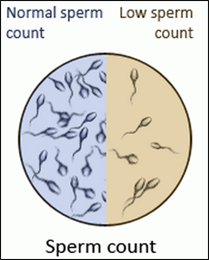Comprehensive guide on low sperm count

A condition that can significantly impact male fertility and reproductive health.
Understanding Low Sperm Count
Low sperm count, also known as oligospermia, refers to a condition where the semen produced by a man contains fewer sperm cells than normal. This condition is of paramount importance in the realm of fertility, as healthy sperm count is vital for successful conception.
Effects on Fertility
A low sperm count can greatly reduce the chances of fertilization, making it challenging for couples to conceive. It is crucial to address this issue promptly to increase the likelihood of achieving pregnancy.

Causes of Low Sperm Count
Various medical conditions can contribute to low sperm count, including hormonal imbalances, infections, and genetic factors. Consulting a medical professional can help identify underlying health issues.
1. Medical Conditions
Various medical conditions can contribute to low sperm count, including hormonal imbalances, infections, and genetic factors. Consulting a medical professional can help identify underlying health issues.
2. Lifestyle Factors
Unhealthy lifestyle habits such as smoking, excessive alcohol consumption, and stress can negatively impact sperm production. Making positive changes in these areas can lead to improved sperm health.
Environmental Influences
Exposure to environmental factors like toxins and radiation can affect sperm production. Minimizing exposure to such substances can help protect and enhance sperm count.
Diagnosing Low Sperm Count
Medical Evaluations
Underlying medical conditions can contribute to low sperm count. Consulting a healthcare provider for a thorough evaluation can help determine the root cause and guide appropriate treatment.
Semen Analysis
A semen analysis is the primary diagnostic tool used to assess sperm count and quality. A comprehensive analysis provides insights into the concentration, motility, and morphology of sperm.
Treatment Option for Low Sperm Count.
Lifestyle Changes
Adopting a healthy lifestyle is a fundamental step in improving sperm count. Regular exercise, a balanced diet, and stress management can positively influence sperm production.
Medical Treatments
Medical interventions, such as hormone therapy or surgery, may be recommended based on the underlying cause of low sperm count. Consulting a specialist is crucial to determine the most suitable treatment approach.
Assisted Reproductive Techniques
In cases where natural conception is challenging, assisted reproductive techniques like in vitro fertilization (IVF) or intracytoplasmic sperm injection (ICSI) can be considered. These advanced methods increase the chances of successful fertilization.
